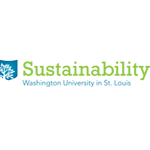Washington University in St. Louis and the City of St. Louis have announced the eight teams selected to move to the final round of the Sustainable Land Lab competition.

The competition is the first of its kind in St. Louis where anyone can compete for the opportunity to create a two-year demonstration project to transform a vacant lot into an asset that advances sustainability.
Ideas selected to move forward include:
Bistro Box: The Bistro Box concept is a small business incubator that transforms surplus cargo containers into a compact restaurant and culinary destination.
Carbon Carpet: The Carbon Carpet team proposes to install warm season grass plantings on unutilized urban lots currently owned by the LRA. Plantings will be positioned to afford educational, financial, ecological and social benefits to neighbors, city residents and fellow inhabitants of spaceship earth, in that order, respectively.
Chess Pocket Park: Community sustainability supported through Chess Pocket Park – outdoor community chess venue for residents with a permanent location supporting our primary community asset – its people.
HUB (Hybrid Urban Bioscapes): A productive landscape and a public space. The intention is to share knowledge and strategies with local residents about how to cultivate and maintain a food producing garden while having a place to gather.
Mighty Mississippians: Learning Lessons from the Past: A modern agricultural and sustainable living model, the premises for our approach rooted in regional history, the Mississippians and their ancestors, as well as modern permaculture practices. Using concepts of permaculture, the site would demonstrate the interdependent relationships that work efficiently and sustainably in nature and that worked for previous civilizations, from the soil to the birds, to humans.
Renewing Roots Urban Farm: A scalable urban agriculture network that proposes to transform blighted lots into cost efficient models of sustainability.
ShiftUP: A community space to rent, maintain, and learn about bicycles. As a bike hub, shiftUP would encourage bikers from other parts of St. Louis to visit Old North and interact with the community.
Sunflower+ Project: The Sunflower+ Project: StL proposes turning previously developed urban lots into a community asset through the planting of sunflowers. With a goal of eventually spurring redevelopment of these vacant parcels, the project will serve as an appropriate, scalable, and productive transitional solution.
“We continue to be impressed and humbled by the creativity, ingenuity and enthusiasm of the teams,” says Phil Valko, director of sustainability at Washington University. “Unlike a traditional ‘ideas’ competition where the sky is the limit, we are requiring both a bold vision and a plan for implementation. In the second round of the competition, the teams really stepped up to the challenge by securing additional funding, implementation partners and in some cases, combining efforts with one another.”
The competition originally received 48 submissions in its open call for participants, which was launched at the Sustainable Cities Conference in November 2012. Fifteen teams were selected to compete in the second round, which required participation in an on-site charrette, and submission of a concept board and implementation plan.
The concept boards are posted both online and on display through the end of the month at the Old North St. Louis Restoration Group office located at 2700 N. 14th Street.
The jury including, Chip Crawford, senior principal, Forum Studio; Otis Williams, deputy executive director of the St. Louis Development Corporation, City of St. Louis; Bruce Lindsey, dean of architecture, Washington University; Sean Thomas, executive director, Old North St. Louis Restoration Group; Hank Webber, executive vice chancellor for Administration, Washington University; and Catherine Werner, director of sustainability, City of St. Louis, reviewed the second round submissions and evaluated each on the following criteria:
- Creativity of concept, innovative solution
- Connectivity to City sustainability plan and regional context
- Integration of diverse factors, including, but not limited to water, food, energy, waste, social justice, art, economy and community
- Response to unique site characteristics and local community context
- Team qualifications
- Replicable idea
- Scalability of concept
- Clarity of how project concept will translate into a physical demonstration project
- Considerations of communications about the project & community engagement
- Commitment to implementation & maintenance of proposed project, including anticipated resource needs & potential sources
- Clear statement of intended outcomes
- Ability to gauge success across domains of environment, social and economic impact
“I was really impressed with the quality of ideas and their ability to stretch themselves to consider the environmental, social and economic impact of their project in the community, as well as their ability to be replicated in other neighborhoods throughout the city,” says Williams.”That’s really important to us at St. Louis Development Corporation. We have a lot of inventory that could be put to better use, so we are happy to see so many viable project possibilities.
Submissions for the final round will be due on March 25, with a PechaKucha-style presentation to the jury in early April. Up to four winning teams will be announced on April 10. Winning teams will receive a two-year land lease and $5,000 seed money to start their project.
All of the submissions can be found online at sustainablecities.wustl.edu/land-labs-competition/submissions/.
Photos from the on-site charrette can also be found online at sustainablecities.wustl.edu/2013/01/teams-advance-ideas-in-onsite-work-session/.
The competition brief, which outlines the goals and context for this initiative, can be found online at sustainablecities.wustl.edu/wp-content/uploads/2012/08/SustainableLandLab_CompetitionBrief_110212.pdf.
The Sustainable Land Lab is the ongoing legacy of Washington University’s three-day Sustainable Cities Conference, held Nov. 1-3, 2012.
The Sustainable Land Lab is designed to be a living laboratory of two-year demonstration projects, which will showcase innovative ideas and integrated strategies for transforming one of the region’s greatest challenges — vacant land — into an asset that can advances sustainability.